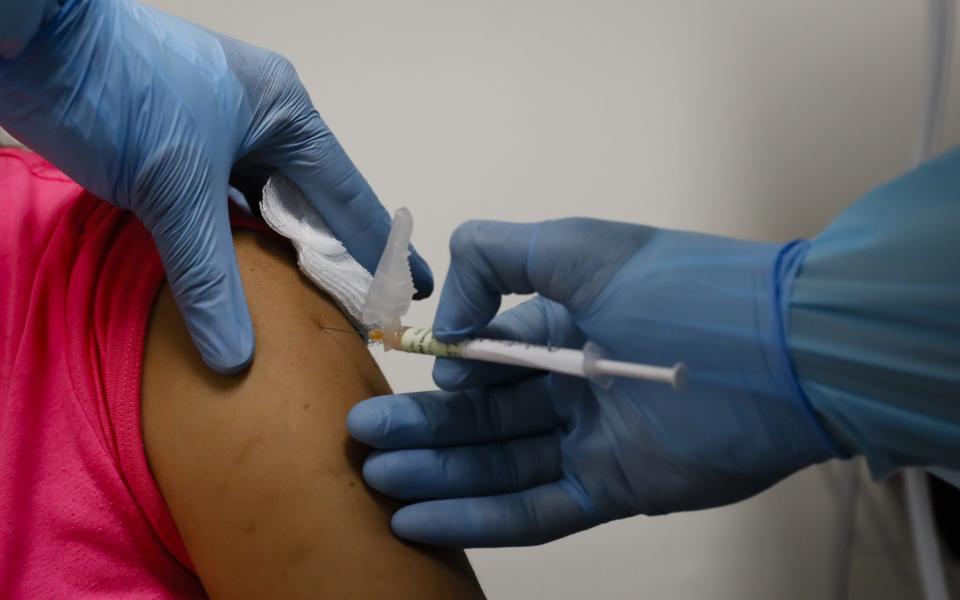India considers fast tracking Covid-19 vaccine for vulnerable groups

India is considering emergency fast-tracking a Covid-19 vaccine for its elderly and high-risk citizens by early 2021, as the country struggles to contain the world’s fastest growing epidemic.
New Delhi has already reported over 4.7 million cases of the deadly virus, although this is thought to be a gross underestimation due to a lack of testing, with a peak not expected until February next year.
India’s Minister of Health, Harsh Vardhan, said the country would look to shorten the phase three stage of vaccine trials - the final phase, whereby a vaccine is tested on human volunteers.
Mr Vardhan did not specify how India would decrease the time taken to produce a Covid-19 vaccine but he promised no safety regulations would be ignored, volunteering to receive the first immunisation personally.
“No date has been fixed for the vaccine launch, it may be ready by the first quarter of 2021,” said Mr Vardhan. “A vaccine group has been established recently by the government to look into various issues related to the delivery of vaccines to vulnerable populations.
“Issues like vaccine security, cost, equity, cold-chain requirements [and] production timelines are also being discussed intensely.”
Globally, there are almost 200 vaccine candidates in development and 15 are in phase three. However, public health experts are cautioning that their manufacture should not be rushed and instead, extensive testing must be done to make sure any vaccine is both safe and effective.
The World Health Organisation described the decision to suspend trials of the highly-promising AstraZeneca and Oxford University vaccine, after one volunteer fell ill, as a “wake up call.”
Phase three trials of the vaccine have since re-commenced in the UK, after the pharmaceutical giant received permission from British regulators, but remain paused in India. The Serum Institute of India had hoped to manufacture 300 million doses of the vaccine, which had elicited strong antibody and T-cell response during trials, by the end of 2020.
In August, Russia announced it had successfully produced a Covid-19 vaccine, known as “Sputnik V” but there are concerns as it has only been tested on 76 people so far. In comparison, the AstraZeneca and Oxford University vaccine has been tested on 18,000 people worldwide.
The Russian Government has approached India to carry out further testing but the Indian government is yet to confirm.
In the meantime, India is expected to see seven million Covid-19 cases by October but there is some positive news for its beleaguered Prime Minister, Narendra Modi, as its fatality rate is lower than in other badly-hit countries like the United States. This has been attributed to its young population, with more than 50 per cent of citizens under the age of 25. However, doctors also say Covid-19 deaths are being underreported to avoid panic.
Despite cases surging, New Delhi simply can’t afford to implement another nationwide lockdown to curtail the spread of the virus. A draconian two-month curfew caused India’s economy to contract by a record 23.9 percent in the three months to June end and saw over 120 million Indians lose their jobs in April alone.
Public health experts and politicians alike agree India must instead learn to live with the virus to avoid a humanitarian catastrophe. If it can roll-out a vaccine early to protect its most vulnerable citizens, while simultaneously allowing younger Indians to return to work, this will cushion the economic impact of Covid-19.
Protect yourself and your family by learning more about Global Health Security

 Yahoo News
Yahoo News 